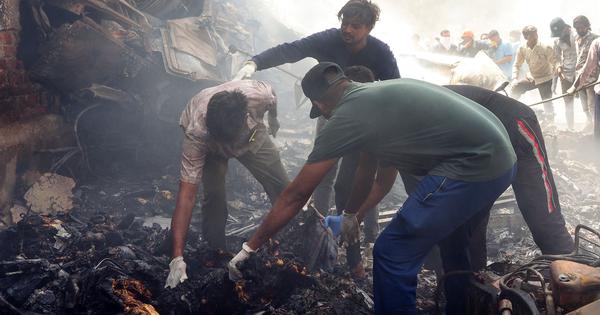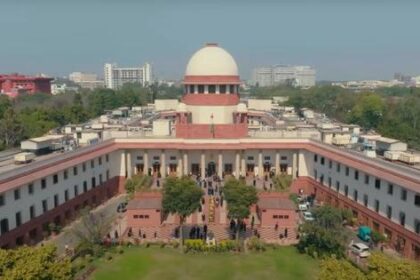Court seeks responses from authorities regarding investigation into the Ahmedabad plane crash that killed 275.
The Supreme Court has expressed its disapproval of media reports suggesting that pilot error was the cause of the Air India plane crash in Ahmedabad on June 12, which resulted in the deaths of 275 individuals. Justices Surya Kant and NK Singh described these insinuations as “unfortunate” during a recent hearing.
The court’s comments came as it was addressing a public interest litigation filed by the Safety Matters Foundation, an organization focused on aviation safety. The petition requests an independent and impartial investigation into the crash, criticizing the Aircraft Accident Investigation Bureau for what it deemed an incomplete preliminary report.
This preliminary report indicated that shortly after takeoff, the aircraft’s fuel control switches moved from the “RUN” to the “CUTOFF” position almost simultaneously, leading to both engines shutting down. The cockpit voice recorder captured one pilot questioning the other about the fuel shutdown, to which the second pilot responded that he did not initiate it. Following a brief interval, the switches reverted to the “RUN” position in an apparent attempt to restore engine thrust. While one engine managed to recover, the other did not, leading to the aircraft’s eventual crash.
Speculation surrounding the causes of the crash has included theories of pilot error or even suicide. However, the Safety Matters Foundation’s petition asserts that the preliminary report failed to consider crucial evidence of potential system anomalies. This includes issues such as electrical faults, the deployment of the ram air turbine, and pre-existing defects in the aircraft, which could have contributed to the incident.
Moreover, the petition argued that the report prematurely cleared the aircraft manufacturer of any responsibility and violated the 2017 Aircraft Investigation of Accidents and Incidents Rules, which mandate that preliminary reports disclose all relevant early-stage data. The court, acknowledging the concerns raised by the petitioners, opted not to issue directives for the immediate release of the investigation materials, including the flight data.
The tragic incident occurred when the Air India Boeing 787-8 Dreamliner, which was on its way to London’s Gatwick airport, crashed just 33 seconds post-takeoff. Among the 242 people on board, only one passenger survived with injuries from the impact. The crash also resulted in the deaths of 34 individuals on the ground, as the aircraft collided with a hostel building associated with the BJ Medical College and Hospital in Ahmedabad.
As the investigation continues, the Supreme Court’s actions highlight the importance of thorough and impartial inquiries into aviation accidents, particularly given the catastrophic consequences of this incident.








